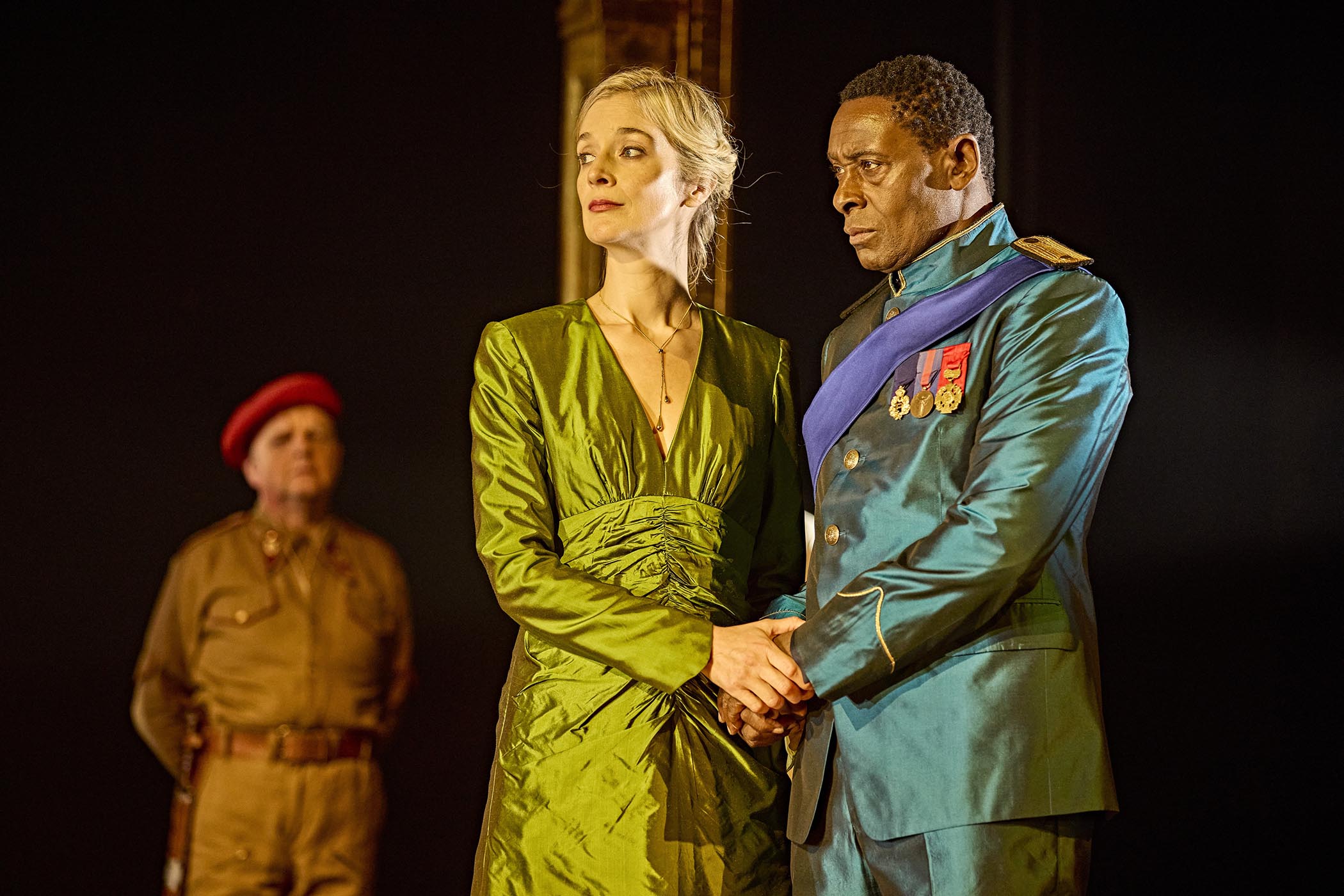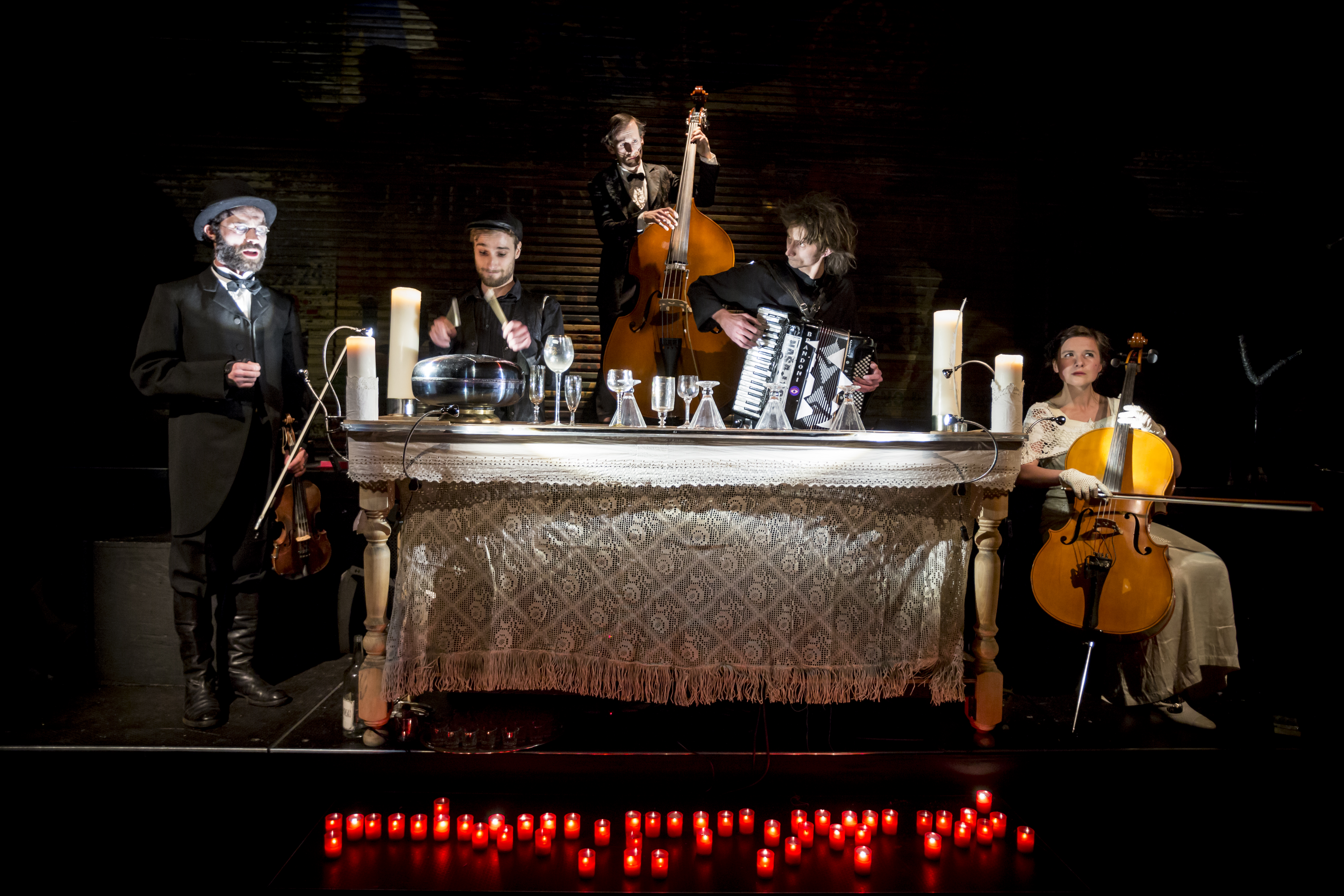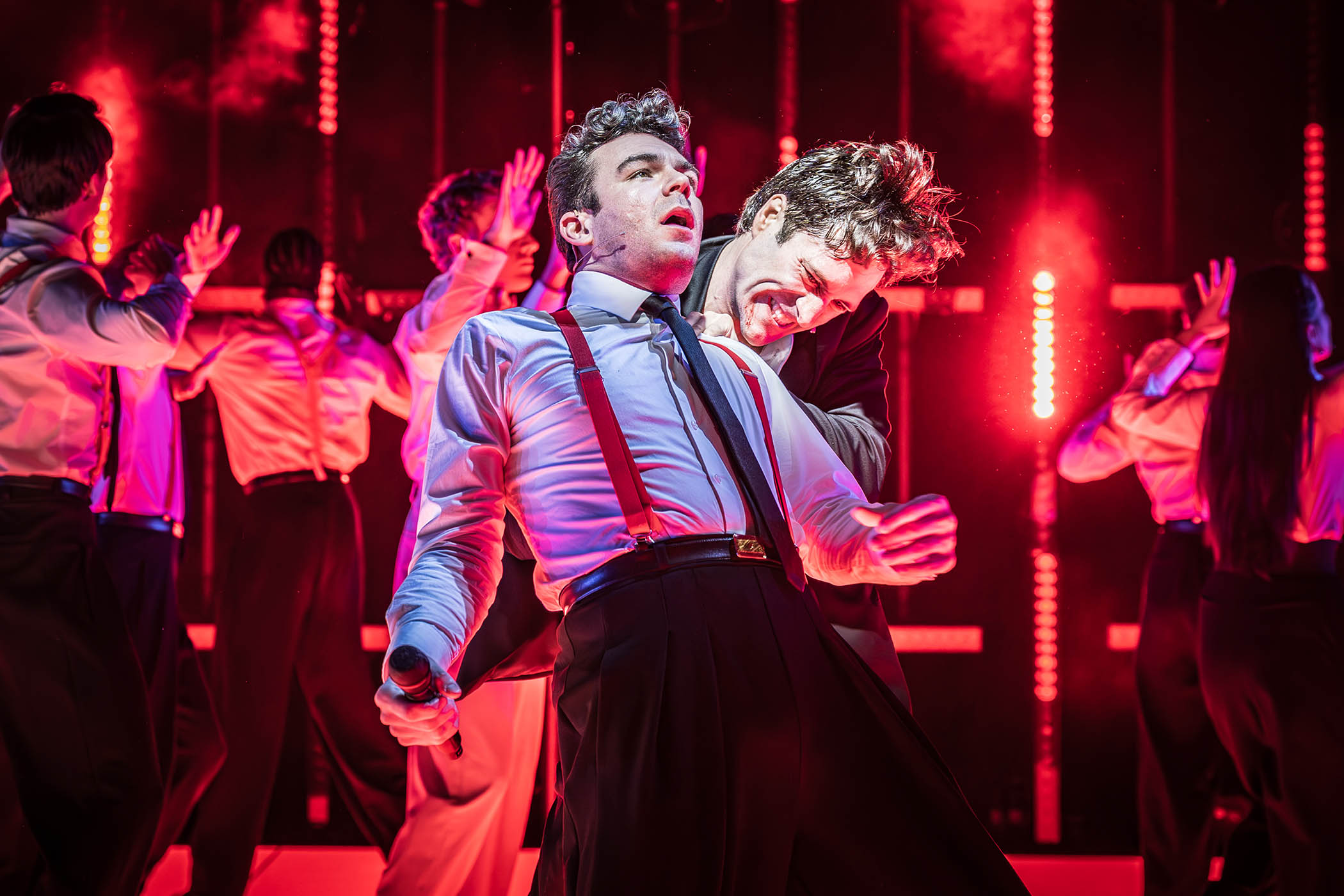For once Othello is the hero of his own drama. No one doubts that Lear or Macbeth are the main men in the plays bearing their names. But it is easy for Othello, out-argued by Iago, to end up looking like a sideshow: he does not motor the plot but decorates it with elegies and laments.
Not so in Tom Morris’s production. From the moment David Harewood comes on stage, in general’s uniform, striding long and easy, he is in command. I saw him take the role in 1997, my first year as The Observer’s theatre critic. Playing opposite a bristling, alarmingly genial, retching Simon Russell Beale, Harewood was impressive but sometimes strenuous. Now he is utterly at ease in the entire range of the part.
Actually, he seems to expand that range: he is both monumental and minutely detailed. Derided (“sooty bosom”) by his father-in-law, he stands still, apparently unperturbed, yet from a seat in the stalls you can see a tic in his cheek as he tenses his jaw. When Iago (Toby Jones) begins to work on him, staining his thoughts, Harewood seems to dim, making you realise how flaring he has been: it is as if his blood is beating a retreat. The vocabulary of military engagement swims in the air. As suspicion consumes him, he plans revenge on his wife as if he were launching a battle campaign.
Just because things are complicatedm doesn’t mean they have to be muddled. Morris’s staging, straightforward and driving, is distinguished by one of the most underrated qualities in Shakespeare productions: it is clear, in speech (though Luke Treadaway’s Cassio mumbles) and in action. Ti Green’s design – golden arches and pillars enclosing the stage – begins by evoking the Doge’s Palace. As conflict stirs, domestically and abroad, and the scene moves from Venice, the gilded structure comes apart like a giant executive toy. PJ Harvey’s original music punctuates the evening, underlining major plot turnings: it is not always necessary but it is gentle, not overplayed, often no more than a shiver or an atmospheric sigh. The pivot of the play rings out unmistakably: “When I love thee not, chaos is come again.”
Newsletters
Choose the newsletters you want to receive
View more
For information about how The Observer protects your data, read our Privacy Policy
This is the 14th time I have written about Othello for The Observer. Of the four plays usually considered Shakespeare’s main tragedies, it is the one I have seen least: King Lear and Macbeth have each had 24 sightings; Hamlet 35. Never has the Othello audience reaction been so loud. A gasp at Othello slapping Desdemona was predictable; the bursts of laughter less so. Some were provoked by Tom Byrne’s extravagantly goofy Roderigo, but more by Jones’s scrunched-up Iago, vivid under a red beret, savouring his salacious insults. There is not much covert about this villain. At times you think even Othello might clock what is going on. Yet the audacious transparency of his machinations is part of Iago’s wiliness. Some of the laughter is the sound of an audience settling down, but the ripple that greets Iago being styled “honest” is the noise of people startled into amusement: Shakespeare’s irony is landing.
Slowly the more pallid Shakespearean heroines are being remade. A few months ago, Francesca Mills lit up the part of Ophelia. Now, gracefully and less explosively, Caitlin FitzGerald gives Desdemona the strength that her fate – as the victim of a victim – often obscures. After all, she is first seen defying her father and then stands up to her husband in support of his lieutenant. She is part of some of the best ever feminist exchanges with her maid Emilia (Vinette Robinson, usually incandescent, is surprisingly underpowered), who describes how men “eat us hungerly and … belch us”. FitzGerald sprints across the stage and is equally athletic in argument: she never merely wheedles. The passion between her and Othello is so evident that the soldiers around them shrink away in embarrassment. Talking about her, Harewood makes the word “she” into a long whoop of pleasure, as if to lasso her with love. Attacked for his marriage, he twists his wedding ring as though it were a talisman: Chiwetel Ejiofor made the same gesture when he played the part in 2007. He caresses his wife’s neck lovingly – in dreadful anticipation of the moment when he will wring it.
This is the first of a series of modern Shakespeare stagings put on by the newly formed Chris Harper Productions. Directed by Morris, these will be shown over the next five years. That is good news for the West End.
Othello is at Theatre Royal Haymarket, London, until 17 January 2026
Related articles:
Photograph by Brinkhoff-Moegenburg



